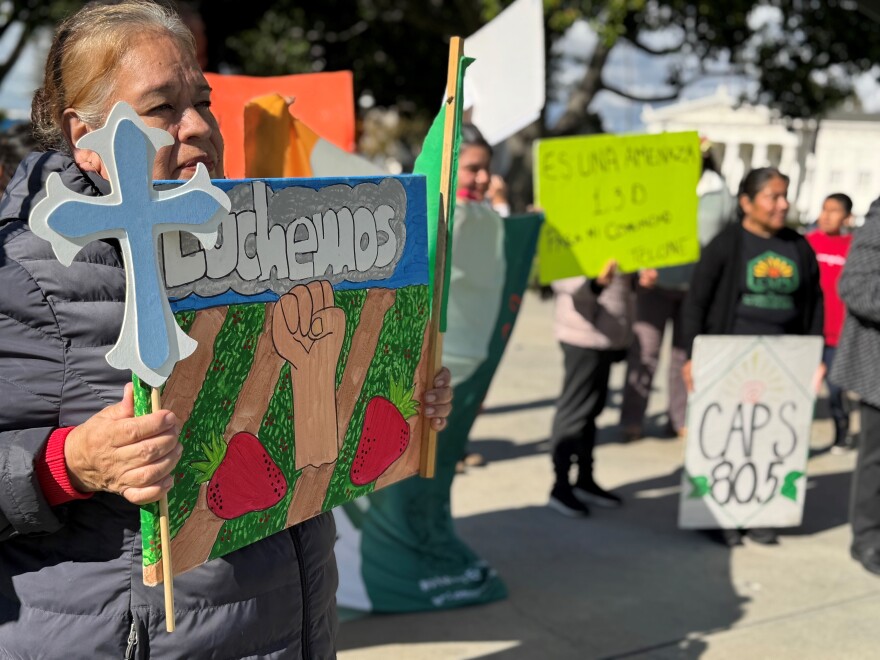It’s called 1,3-dichloropropene (1,3-D) and is California‘s third most used synthetic pesticide.
"We're talking about pesticides that cause cancer and also affect the lungs," explained Sarah Aird from the statewide coalition Californians for Pesticide Reform at a rally on Wednesday in Oxnard.
Aird said hazardous fumigants like 1,3-D are prone to drifting and disproportionately impact vulnerable farmworker communities.
"There's heavier use of 1,3-D in communities with majority Latino populations. This is honestly a continuation of an unfair, unjust agricultural system that's been set up from the beginning to take advantage of and exploit people without documentation who are incredibly hard workers and responsible for helping us eat, and yet they don't have the voice that those of us with citizenship have. So it's harder for them to protest."
Calls to better restrict the use of harmful spray pesticides across the state in farmworker communities have been made, and the fumigant is already banned in 40 countries, including the entire European Union.
Since 2014, the use of pesticides within a quarter mile of schools has increased in California. Aird would like to see the use of fumigants phased out entirely, and for buffer zones around schools to be increased in the meantime.



